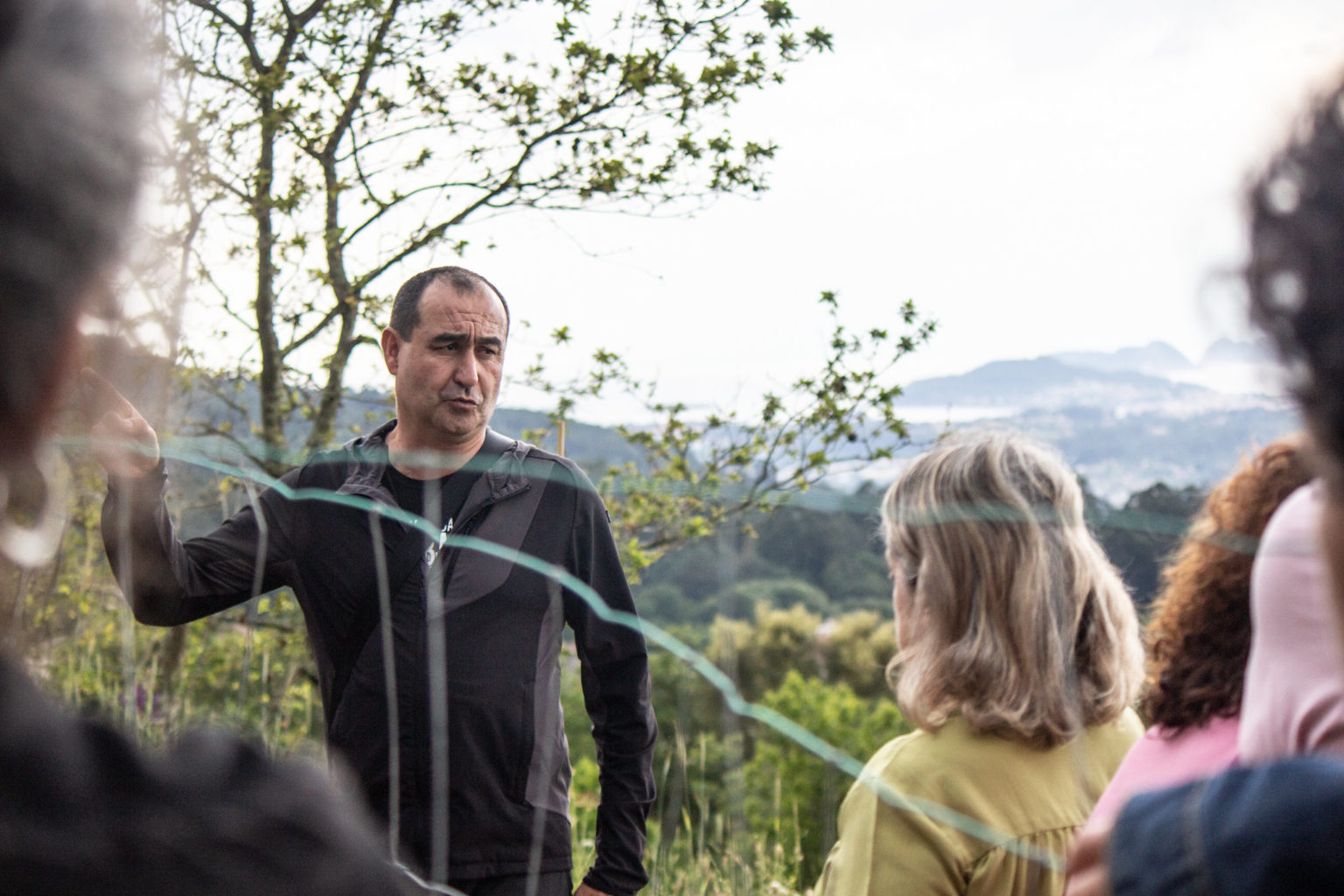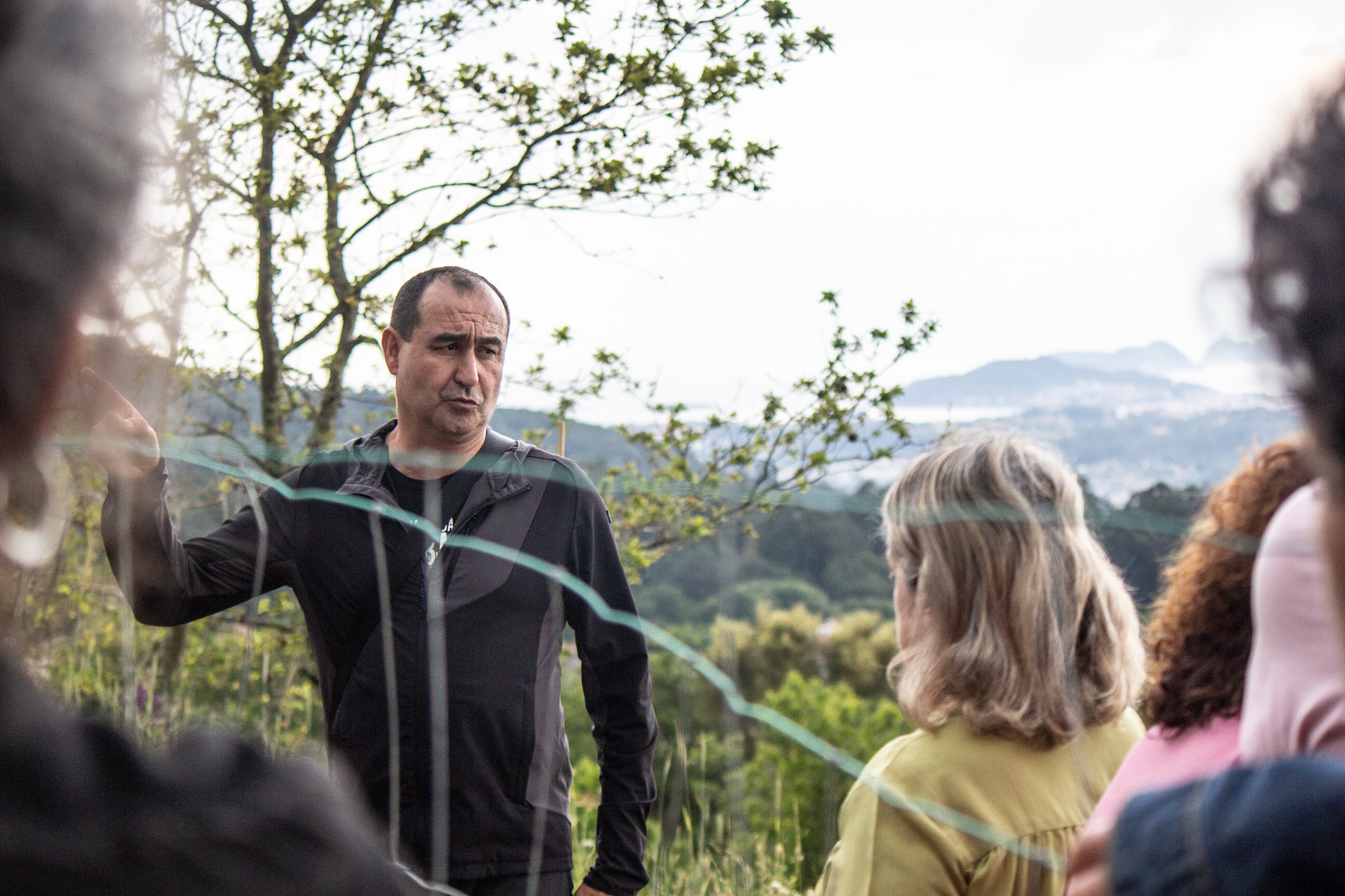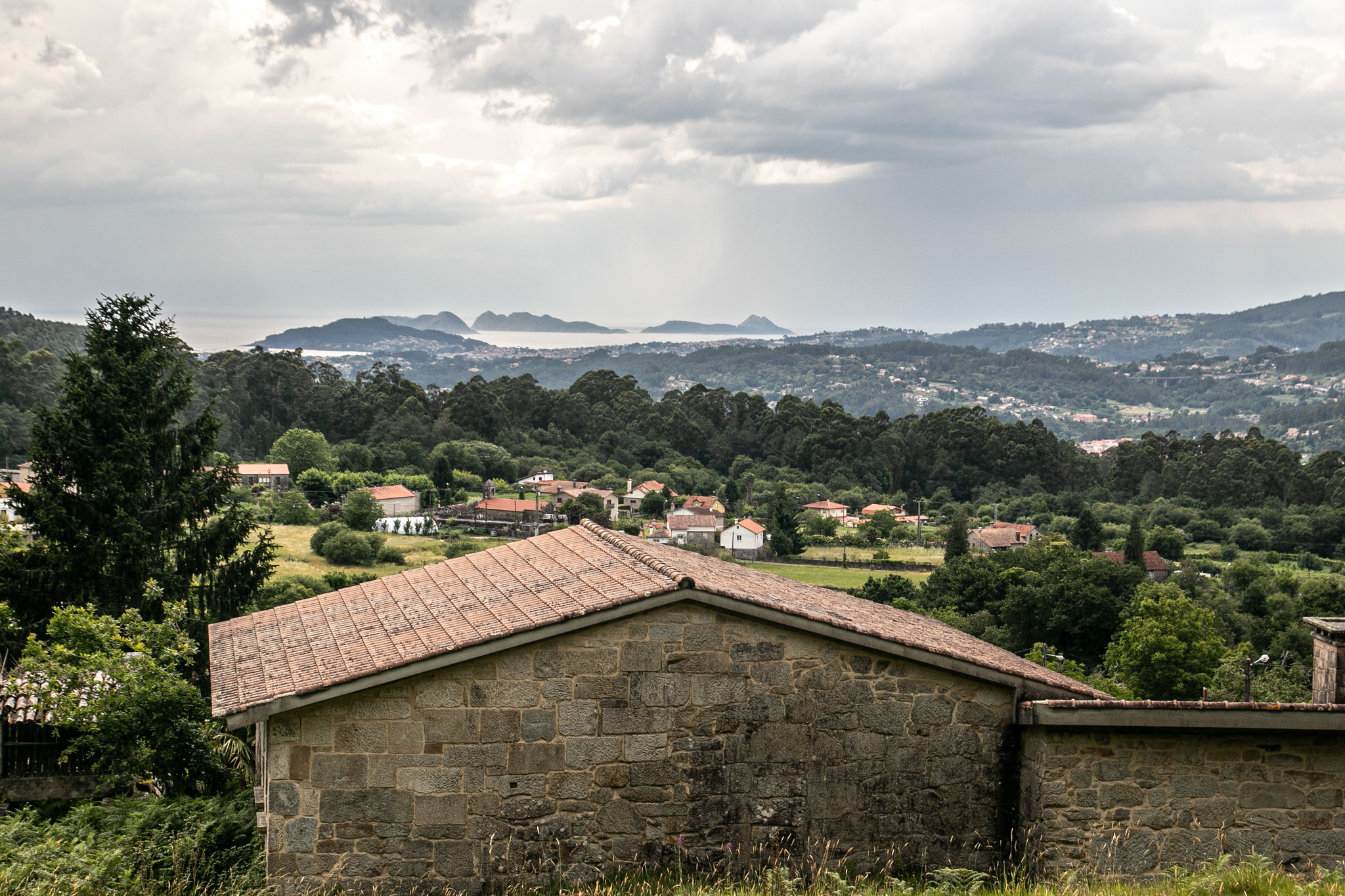"We want to make young people aware that the mountain is the future and that there can be everything in it: art, culture, leisure, sport and work".

Interview with one of the members of the community of Montes de Couso, Xosé Antón Araúxo, who explains in this interview the project he is developing on the mountain and how it connects with 'Tierra Común', the Concomitentes initiative within the framework of the European project 'Art Living Lab'.
The community of Couso seeks to convert the forest into a resource of multifunctional value and an inexhaustible source of resources to achieve a forest with greater environmental value and an environment that is more respectful of native tree species. Against this backdrop, one of the members of the community of this communal woodland, Xosé Antón Araúxo, covers in this interview the details of this project and how it complements what is being done at Common Ground', within the European project Art Living Lab for Sustainability.
Tell me about your community project in 'Montes de Couso', what are your focuses and your identity and objectives?
The community was formed in 1984, when the communal forests were recovered from the Franco regime and until then had been in the hands of the local councils. At the moment we are 82 "comuneros", one per house, which is what the law allows, and all of us who are in these "communal houses" participate in the decisions of the assembly.
We have been in the board since 2008, we believe that the forest has a brutal potential, it is not only to produce eucalyptus and pine, but there are more alternatives that can be offered, betting on a multifunctional forest, with educational projects, leisure and other alternative timber and other products.

How does this crossover with the mediator, Natalia Balseiro, and Concomitentes come about?
We didn't know about Concomitentes. The coordinator of the project, Fran Quiroga, called me to tell me about its existence and to ask me if we wanted to be part of it. We were delighted with anything that involved enriching our activities. From there, we contacted the mediator, Natalia Balseiro, and we started to work.
From Montes de Couso you have many parallel projects, beyond the production of eucalyptus, which have to do with identity and your own cultural project. How do you think this connects with Concomitentes and yours?
From the outset, we have been committed to enhancing the value of the forest, not only with these productions to create jobs, which was our ultimate goal, but also to revalue the forest so that people can enjoy it, respect it and take care of it. Above all, we want to raise awareness among young people that the forest is the future and that there can be everything in it: art, culture, leisure, sport and work.
How do you value the work of Concomitentes in promoting encounters, participation and the connection between art and society?
We decide everything through an assembly organisation, so we are used to participatory processes because we are used to debating and making decisions together.
In fact, more than 90% of the agreements we take are unanimous, very few with disagreement, therefore, everything that contributes to new forms of communication management and mediation will enrich us and help us to carry out our projects.

How is the mediation process guided by Natalia Balseiro going?
The process is being very positive because it involves the neighbours, the community members, which is very enriching. They are going to learn to value the forest more and to see how the forest, which is their property, can bring them many benefits, not only in terms of landscape, but also social, economic and cultural benefits of all kinds.
If you were to dream about the work of art, how do you visualise it in your head?
Obviously this is a process that we will decide together, but within the Montes community, we have different educational projects underway that we wanted to complete. For example, the 'Bosque de la lengua' is a very cool project to bring environmental values to people, especially children, and to project our language among young people. Unfortunately, our language is an element that is being lost.










 Concomitentes
Concomitentes